MercoPress. South Atlantic News Agency
Economy
-
Tuesday, November 10th 2020 - 09:07 UTC
Mexican president faces corruption allegations of his inner circle
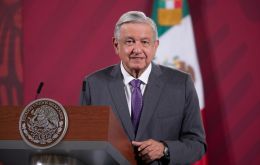
Mexican President Andres Manuel Lopez Obrador urged authorities on Monday to look into a report accusing a top aide of financial impropriety, while calling it part of a media campaign aimed at bringing his administration into disrepute.
-
Tuesday, November 10th 2020 - 08:30 UTC
Lords strike a heavy defeat to Boris Johnson on proposed laws to breach UK's EU exit treaty

Prime Minister Boris Johnson suffered a heavy defeat in parliament's upper chamber on Monday over proposed laws which would allow him to breach Britain's EU exit treaty – a plan that has been criticized by US president-elect Joe Biden.
-
Monday, November 9th 2020 - 09:21 UTC
Petrobras expects increased production from the pre-salt offshore basin

By Tsvetana Paraskova for Oilprice.com – Because of the increased production at the prolific pre-salt offshore basin, Petrobras expects its oil and gas production this year to exceed earlier guidance, Brazil’s state oil firm said when it reported its production figures for Q3.
-
Saturday, November 7th 2020 - 09:43 UTC
Argentina wants EU to eliminate zero tariff access for Falklands' exports
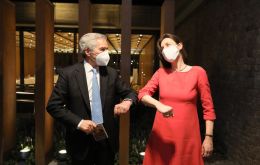
Argentina held a meeting with the European Union ambassador and 21 of 27 EU members' representatives in Buenos Aires and formally called for an end of the support for UK Falklands' sovereignty recognition in the ongoing Brexit negotiations between Brussels and London.
-
Saturday, November 7th 2020 - 09:03 UTC
Argentina trying to shore up investor confidence and lure capital back
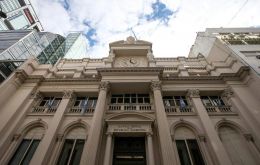
After failing to stem a run on its currency with heavy-handed restrictions, Argentina is shifting tack and has begun adopting more orthodox economic measures to try to shore up investor confidence and lure capital back into the country.
-
Saturday, November 7th 2020 - 08:55 UTC
Bolivia's miracle architect now faces the challenge of scarce funds and managing austerity

Luis Arce, a quiet economist who will be sworn in as Bolivia's president on Sunday after a landslide election win, knew where he stood in the political spectrum as a young teenager in La Paz, when he picked up the writings of philosopher Karl Marx.
-
Saturday, November 7th 2020 - 08:47 UTC
Argentina expected to request fresh funds from IMF; mission arrives next week
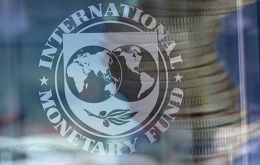
A mission from the International Monetary Fund will visit Argentina from Nov. 10 to begin formal negotiations for a new financing program, an IMF spokesman said on Friday.
-
Saturday, November 7th 2020 - 08:33 UTC
Walmart leaves Argentina, sells local assets to the Grupo de Narvaez

Walmart will sell its business in Argentina as it continues to restructure its international division. Walmart will continue to support the business transition services and sourcing agreements under Grupo de Narvaez, the company that is acquiring it, but it will not retain an equity stake.
-
Saturday, November 7th 2020 - 08:06 UTC
Food and transport costs lifting annual inflation in Brazil to the central bank year target
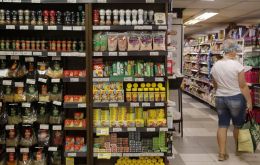
Brazilian inflation in October rose to its highest level for that month since 2002, figures showed on Friday, driven by rising food and transport costs and lifting annual inflation to within sight of the central bank’s year-end target.
-
Friday, November 6th 2020 - 09:50 UTC
Iran, Venezuela's close ally proclaims 'US can no longer control what's happening in the world'
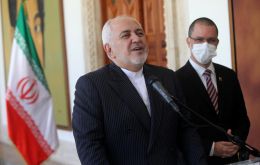
Iran believes the U.S. government no longer can “control what’s happening in the world” or show other countries how to protect citizens’ rights, the Iranian foreign minister said on Thursday during a visit to ally Venezuela.
